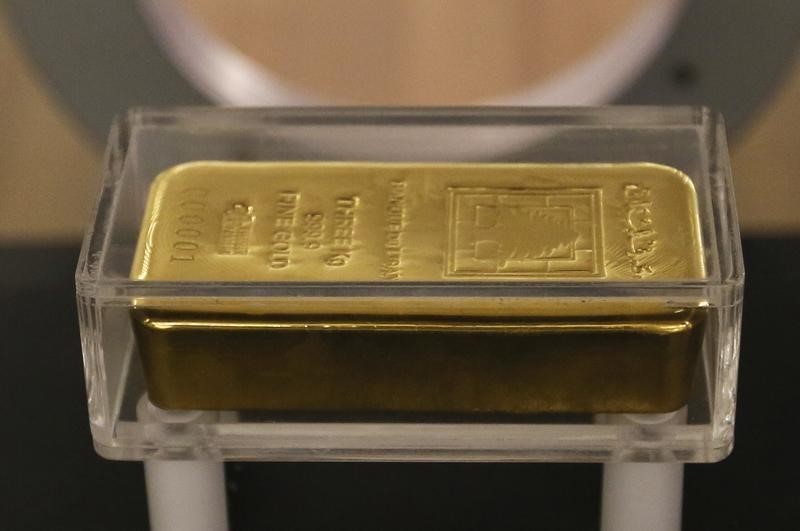Investing.com-- Gold prices kept to a tight range on Tuesday, remaining under pressure from the dollar as investors hunkered down before inflation data that is widely expected to factor into the Federal Reserve’s plans for interest rates.
The yellow metal had fallen back into a $2,000 to $2,050 an ounce trade range over the past week, as traders began steadily phasing out expectations of early interest rate cuts by the Fed.
A slew of Fed speakers also warned last week that the bank was in no hurry to cut interest rates early, amid fears of sticky inflation. This saw the dollar shoot up to three-month highs, which weighed on gold.
The greenback edged higher in Asian trade.
Spot gold steadied at $2,020.06 an ounce, while gold futures expiring in April were flat at $2,033.45 an ounce by 00:33 ET (05:33 GMT).
CPI data awaited for more Fed, rate cut cues
Data due later on Tuesday is expected to show consumer price index (CPI) inflation eased in January. But the reading is also expected to remain well above the Fed’s 2% annual target, giving the central bank little cause to begin cutting interest rates early.
This scenario bodes poorly for gold, given that higher rates push up the opportunity cost of buying bullion, which offers no yield.
Markets have been steadily pricing out expectations for rate cuts in March and May, and now see only a 45% chance of a 25 basis point cut in June, according to the CME Fedwatch tool. Gold prices had tumbled amid the waning bets on early rate cuts.
Spot prices were now trading just $20 above the closely-watched $2,000 an ounce support level, which analysts say could be tested in the near-term, especially in the wake of a stronger inflation reading.
Copper prices rebound, more economic cues awaited
Among industrial metals, copper prices rose sharply from a three-month low after expectations of increased supply- following the discovery of a massive copper deposit in Zambia- drove steep losses last week.
Copper futures expiring in March rose 0.8% to $3.7485 a pound.
But the Zambia deposit will take years to develop into a fully operational mine, which indicates that the perceived supply bump in copper will not materialize in the near-term.
On the demand front, focus was now on more readings from major economies this week for more clear cues on copper demand. Fourth quarter GDP data from the euro zone, UK and Japan is due later this week.
